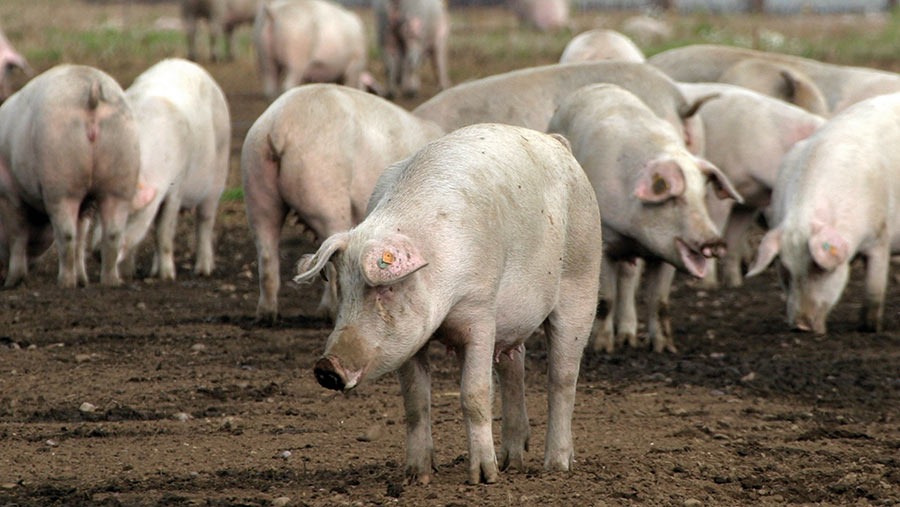Pig industry aghast at government delays on border controls
 © Tim Scrivener
© Tim Scrivener The pig farming industry has been left “aghast” over the UK government’s decision to further delay the introduction of full border checks on EU imports.
National Pig Association (NPA) chairman Rob Mutimer described the delays as “disgraceful”, considering that African swine fever continues to spread in pig herds across many countries in Continental Europe.
“Jacob Rees-Mogg [Brexit opportunities minister] sending out a signal to the whole of Europe that you can bring anything in here without any border checks at all is absolutely disgraceful,” said Mr Mutimer, updating farmers at NFU Council on Wednesday (29 June).
See also: Pig farmers awaiting Tesco support funding
“We know we’ve got significant diseases, including African swine fever on the Continent, and we know meat from those areas is making its way into this country unchecked.”
Mr Mutimer said Scotland has continued to check its borders and is finding illegal meat coming in on a weekly basis, while the UK government “continues with its policy of allowing everything in”.
He added: “It gives completely the wrong message to anyone who voted for Brexit and a way of controlling our borders – just tear it up and let everything come in.”
Mr Mutimer said the farming industry was relieved that Defra had ruled out a suspected case of foot-and-mouth disease in a Norfolk pig herd last week.
It was also a “real positive” that swine vesicular disease had been ruled out by Sunday 26 June.
But he warned there was clearly a “significant problem” in the unit in question and once the diagnosis is made, the pig industry “will have to react accordingly”.
“Farmers are currently losing £50 on every pig they sell.”
Addressing #NFUCouncil, Chair of the @NatPigAssoc @MutimerRob outlines the impact of months of supply chain issues across the pig sector and additional pressures from rapidly rising input costs on British pig farmers ? pic.twitter.com/Ym997vTye0
— National Farmers’ Union (@NFUtweets) June 28, 2022
Meanwhile, Mr Mutimer said pig producers were losing on average £50 on every pig sold, with costs of production around £2.40/kilo and the market paying only around 185p/kilo, which is “completely unsustainable”.
Small backlog of pigs
There is still a “small backlog” of pigs on UK farms, due to ongoing labour shortages on farms and in abattoirs. The NPA estimates a 15-20% reduction in the national pig herd, which by this September will equate to a reduction in pig slaughter numbers of around 50,000 per week.
On a more positive note, Mr Mutimer said a speedy Polymerase Chain Reaction (PCR) test introduced at abattoirs had shown pig herds do not have a significant problem with tuberculosis.
There has also been a 68.7% reduction in antibiotics used on pig farms since 2015. “We’re on a really good trajectory,” said Mr Mutimer.

